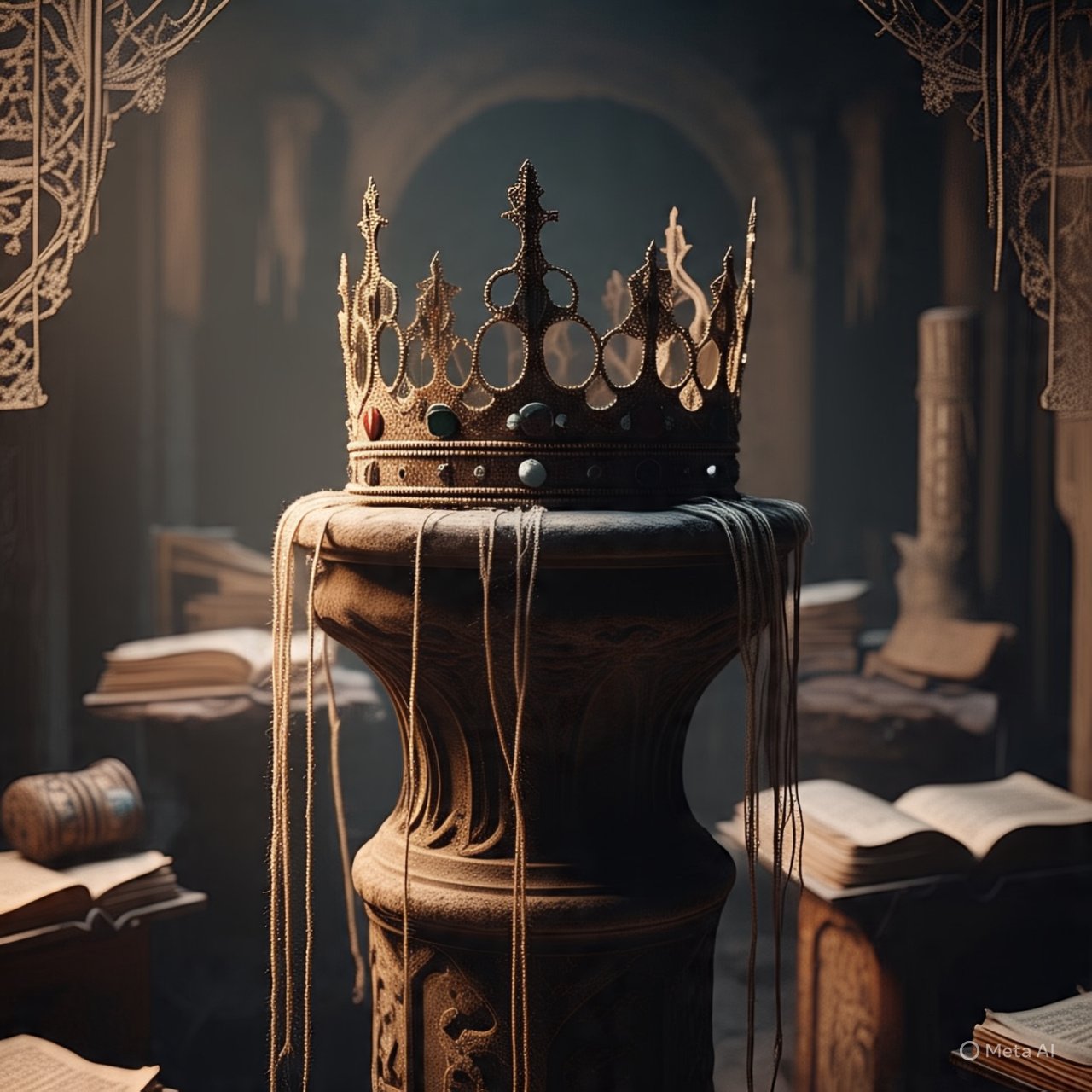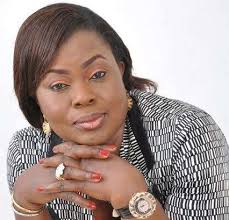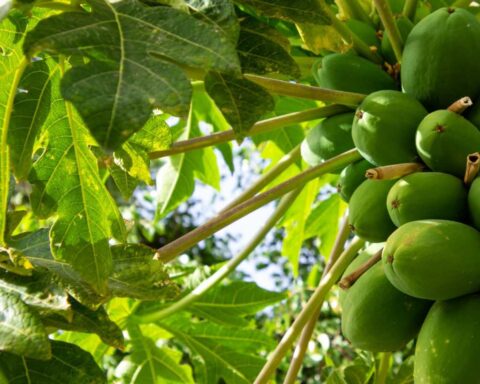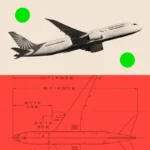(Matthew 1:1-17)
New International Version (NIV):
1 This is the genealogy of Jesus the Messiah the son of David, the son of Abraham: 2 Abraham was the father of Isaac, Isaac the father of Jacob, Jacob the father of Judah and his brothers, 3 Judah the father of Perez and Zerah, whose mother was Tamar, Perez the father of Hezron, Hezron the father of Ram, 4 Ram the father of Amminadab, Amminadab the father of Nahshon, Nahshon the father of Salmon, 5 Salmon the father of Boaz, whose mother was Rahab, Boaz the father of Obed, whose mother was Ruth, Obed the father of Jesse, 6 and Jesse the father of King David. David was the father of Solomon, whose mother had been Uriah’s wife, 7 Solomon the father of Rehoboam, Rehoboam the father of Abijah, Abijah the father of Asa, 8 Asa the father of Jehoshaphat, Jehoshaphat the father of Jehoram, Jehoram the father of Uzziah, 9 Uzziah the father of Jotham, Jotham the father of Ahaz, Ahaz the father of Hezekiah, 10 Hezekiah the father of Manasseh, Manasseh the father of Amon, Amon the father of Josiah, 11 and Josiah the father of Jeconiah and his brothers at the time of the exile to Babylon. 12 After the exile to Babylon: Jeconiah was the father of Shealtiel, Shealtiel the father of Zerubbabel, 13 Zerubbabel the father of Abihud, Abihud the father of Eliakim, Eliakim the father of Azor, 14 Azor the father of Zadok, Zadok the father of Akim, Akim the father of Elihud, 15 Elihud the father of Eleazar, Eleazar the father of Matthan, Matthan the father of Jacob, 16 and Jacob the father of Joseph, the husband of Mary, and Mary was the mother of Jesus who is called the Messiah. 17 Thus there were fourteen generations in all from Abraham to David, fourteen from David to the exile to Babylon, and fourteen from the exile to the Messiah.
God’s Word Translation (GW):
1 This is the list of ancestors of Jesus Christ, descendant of David and Abraham. 2 Abraham was the father of Isaac. Isaac was the father of Jacob. Jacob was the father of Judah and his brothers. 3 Judah was the father of Perez and Zerah (Their mother was Tamar). Perez was the father of Hezron. Hezron was the father of Ram. 4 Ram was the father of Amminadab. Amminadab was the father of Nahshon. Nahshon was the father of Salmon. 5 Salmon was the father of Boaz (Boaz’ mother was Rahab). Boaz was the father of Obed (Obed’s mother was Ruth). Obed was the father of Jesse. 6 Jesse was the father of King David. David was the father of Solomon (Solomon’s mother had been Uriah’s wife). 7 Solomon was the father of Rehoboam. Rehoboam was the father of Abijah. Abijah was the father of Asa. 8 Asa was the father of Jehoshaphat. Jehoshaphat was the father of Joram. Joram was the father of Uzziah. 9 Uzziah was the father of Jotham. Jotham was the father of Ahaz. Ahaz was the father of Hezekiah. 10 Hezekiah was the father of Manasseh. Manasseh was the father of Amon. Amon was the father of Josiah. 11 Josiah was the father of Jehoiachin and his brothers at the time of the exile to Babylon. 12 After the exile to Babylon, Jehoiachin was the father of Shealtiel. Shealtiel was the father of Zerubbabel. 13 Zerubbabel was the father of Abiud. Abiud was the father of Eliakim. Eliakim was the father of Azor. 14 Azor was the father of Zadok. Zadok was the father of Akim. Akim was the father of Eliud. 15 Eliud was the father of Eleazar. Eleazar was the father of Matthan. Matthan was the father of Jacob. 16 Jacob was the father of Joseph, the husband of Mary. Mary was the mother of Jesus, who is called the Messiah. 17 So there were fourteen generations from Abraham to David, fourteen generations from David until the exile in Babylon, and fourteen generations from the exile in Babylon to the Messiah.
The Passion Translation (TPT):
1 Here is the ancestral record of Jesus Christ, the son of David, the son of Abraham. 2 Abraham was the father of Isaac. Isaac was the father of Jacob. Jacob was the father of Judah and his brothers. 3 Judah was the father of Perez and Zerah (the mother was Tamar). Perez was the father of Hezron. Hezron was the father of Aram. 4 Aram was the father of Amminadab. Amminadab was the father of Nahshon. Nahshon was the father of Salmon. 5 Salmon was the father of Boaz (the mother was Rahab). Boaz was the father of Obed (the mother was Ruth). Obed was the father of Jesse. 6 Jesse was the father of King David. David was the father of Solomon (the mother was Bathsheba, who had been the wife of Uriah). 7 Solomon was the father of Rehoboam. Rehoboam was the father of Abijah. Abijah was the father of Asa. 8 Asa was the father of Jehoshaphat. Jehoshaphat was the father of Jehoram. Jehoram was the father of Uzziah. 9 Uzziah was the father of Jotham. Jotham was the father of Ahaz. Ahaz was the father of Hezekiah. 10 Hezekiah was the father of Manasseh. Manasseh was the father of Amon. Amon was the father of Josiah. 11 Josiah was the father of Jeconiah and his brothers at the time of the exile to Babylon. 12 After the Babylonian exile Jeconiah was the father of Shealtiel. Shealtiel was the father of Zerubbabel. 13 Zerubbabel was the father of Abiud. Abiud was the father of Eliakim. Eliakim was the father of Azor. 14 Azor was the father of Zadok. Zadok was the father of Akim. Akim was the father of Eliud. 15 Eliud was the father of Eleazar. Eleazar was the father of Matthan. Matthan was the father of Jacob. 16 Jacob was the father of Joseph, the husband of Mary, who was the mother of Jesus Christ, the Anointed One. 17 So then, this means there were fourteen generations from Abraham to David, fourteen generations from David to the exile to Babylon, and fourteen generations from the exile to the birth of the Anointed One.
New Living Translation (NLT):
1 This is a record of the ancestors of Jesus the Messiah, a descendant of David and of Abraham: 2 Abraham was the father of Isaac. Isaac was the father of Jacob. Jacob was the father of Judah and his brothers. 3 Judah was the father of Perez and Zerah (whose mother was Tamar). Perez was the father of Hezron. Hezron was the father of Ram. 4 Ram was the father of Amminadab. Amminadab was the father of Nahshon. Nahshon was the father of Salmon. 5 Salmon was the father of Boaz (whose mother was Rahab). Boaz was the father of Obed (whose mother was Ruth). Obed was the father of Jesse. 6 Jesse was the father of King David. David was the father of Solomon (whose mother was Bathsheba, the widow of Uriah). 7 Solomon was the father of Rehoboam. Rehoboam was the father of Abijah. Abijah was the father of Asa. 8 Asa was the father of Jehoshaphat. Jehoshaphat was the father of Jehoram. Jehoram was the father of Uzziah. 9 Uzziah was the father of Jotham. Jotham was the father of Ahaz. Ahaz was the father of Hezekiah. 10 Hezekiah was the father of Manasseh. Manasseh was the father of Amon. Amon was the father of Josiah. 11 Josiah was the father of Jehoiachin and his brothers (born at the time of the exile to Babylon). 12 After the Babylonian exile: Jehoiachin was the father of Shealtiel. Shealtiel was the father of Zerubbabel. 13 Zerubbabel was the father of Abiud. Abiud was the father of Eliakim. Eliakim was the father of Azor. 14 Azor was the father of Zadok. Zadok was the father of Akim. Akim was the father of Eliud. 15 Eliud was the father of Eleazar. Eleazar was the father of Matthan. Matthan was the father of Jacob. 16 Jacob was the father of Joseph, the husband of Mary. Mary gave birth to Jesus, who is called the Messiah. 17 All those listed above include fourteen generations from Abraham to David, fourteen from David to the Babylonian exile, and fourteen from the Babylonian exile to the Messiah.
Good News Translation (GNT):
1 This is the list of the ancestors of Jesus Christ, a descendant of David, who was a descendant of Abraham. 2-6a From Abraham to King David, the following ancestors are listed: Abraham, Isaac, Jacob, Judah and his brothers; then Perez and Zerah (their mother was Tamar), Hezron, Ram, Amminadab, Nahshon, Salmon, Boaz (his mother was Rahab), Obed (his mother was Ruth), Jesse, and King David. 6b-11 From David to the time when the people of Israel were taken into exile in Babylon, the following ancestors are listed: David, Solomon (his mother was the woman who had been Uriah’s wife), Rehoboam, Abijah, Asa, Jehoshaphat, Jehoram, Uzziah, Jotham, Ahaz, Hezekiah, Manasseh, Amon, Josiah, and Jehoiachin and his brothers. 12-16 From the time after the exile in Babylon to the birth of Jesus, the following ancestors are listed: Jehoiachin, Shealtiel, Zerubbabel, Abiud, Eliakim, Azor, Zadok, Akim, Eliud, Eleazar, Matthan, Jacob, and Joseph, who married Mary, the mother of Jesus, who was called the Messiah. 17 So then, there were fourteen generations from Abraham to David, and fourteen from David to the exile in Babylon, and fourteen from then to the birth of the Messiah.
Amplified Bible (AMP):
1 The book of the genealogy (record of the ancestors) of Jesus the Messiah (the Christ, the Anointed), the son (descendant) of David, the son (descendant) of Abraham: 2 Abraham was the father of Isaac, Isaac the father of Jacob, and Jacob the father of Judah and his brothers [who became the twelve tribes of Israel]. 3 Judah was the father of Perez and Zerah by Tamar, Perez was the father of Hezron, and Hezron the father of Ram. 4 Ram was the father of Amminadab, Amminadab the father of Nahshon, and Nahshon the father of Salmon. 5 Salmon was the father of Boaz by Rahab, Boaz was the father of Obed by Ruth, and Obed the father of Jesse. 6 Jesse was the father of David the king. David was the father of Solomon by Bathsheba who had been the wife of Uriah. 7 Solomon was the father of Rehoboam, Rehoboam the father of Abijah, and Abijah the father of Asa. 8 Asa was the father of Jehoshaphat, Jehoshaphat the father of Joram, and Joram the father of Uzziah. 9 Uzziah was the father of Jotham, Jotham the father of Ahaz, and Ahaz the father of Hezekiah. 10 Hezekiah was the father of Manasseh, Manasseh the father of Amon, and Amon the father of Josiah. 11 Josiah became the father of Jeconiah [also called Coniah and Jehoiachin] and his brothers, at the time of the deportation (exile) to Babylon. 12 After the deportation to Babylon: Jeconiah became the father of Shealtiel, and Shealtiel the father of Zerubbabel. 13 Zerubbabel was the father of Abihud, Abihud the father of Eliakim, and Eliakim the father of Azor. 14 Azor was the father of Zadok, Zadok the father of Achim, and Achim the father of Eliud. 15 Eliud was the father of Eleazar, Eleazar the father of Matthan, and Matthan the father of Jacob. 16 Jacob was the father of Joseph the husband of Mary, by whom Jesus was born, who is called the Messiah (Christ). 17 So all the generations from Abraham to David are fourteen generations; from David to the Babylonian deportation (exile), fourteen generations; and from the Babylonian deportation to the Messiah, fourteen generations.
The Message (MSG):
1 The family tree of Jesus Christ, David’s son, Abraham’s son: 2-6 Abraham had Isaac, Isaac had Jacob, Jacob had Judah and his brothers, Judah had Perez and Zerah (the mother was Tamar), Perez had Hezron, Hezron had Aram, Aram had Amminadab, Amminadab had Nahshon, Nahshon had Salmon, Salmon had Boaz (his mother was Rahab), Boaz had Obed (Ruth was the mother), Obed had Jesse, Jesse had David, and David became king. 6-11 David had Solomon (Uriah’s wife was the mother), Solomon had Rehoboam, Rehoboam had Abijah, Abijah had Asa, Asa had Jehoshaphat, Jehoshaphat had Joram, Joram had Uzziah, Uzziah had Jotham, Jotham had Ahaz, Ahaz had Hezekiah, Hezekiah had Manasseh, Manasseh had Amon, Amon had Josiah, Josiah had Jehoiachin and his brothers, and then the people were taken into the Babylonian exile. 12-16 When the Babylonian exile ended, Jeconiah had Shealtiel, Shealtiel had Zerubbabel, Zerubbabel had Abiud, Abiud had Eliakim, Eliakim had Azor, Azor had Zadok, Zadok had Achim, Achim had Eliud, Eliud had Eleazar, Eleazar had Matthan, Matthan had Jacob, Jacob had Joseph, Joseph married Mary, the Mary who gave birth to Jesus, the Jesus who was called Christ. 17 There were fourteen generations from Abraham to David, another fourteen from David to the Babylonian exile, and yet another fourteen from the Babylonian exile to Christ.
At first glance, it seems like dry history – a list of names, some resonant like Abraham, David, Solomon, others obscure like Abiud, Azor, Achim. A genealogy. We skim them, skip them, find them tedious. Yet Matthew, writing to a Jewish audience steeped in the weight of lineage, begins his earth-shattering Gospel here: “This is the genealogy of Jesus the Messiah…” (NIV). It’s a thunderclap. The long-awaited Anointed One, the fulfillment of millennia of prophecy, the hope of Israel and the world, is presented not with a fanfare of angels (yet), but with a family tree. And what a tree it is! This is no sanitized royal scroll airbrushing the blemishes. This is a raw, unvarnished, even scandalous lineage, exposing the messy, broken, glorious humanity through which God chose to enter His own creation. It’s a divine declaration: Redemption is born in the dirt of real history, woven through the flawed threads of real people. You feel the weight of your own lineage, don’t you? The unspoken stories, the triumphs whispered and failures buried, the secrets held in old photographs, the burdens carried across generations – the farmer’s resilience from Benue soil, the trader’s shrewdness from Kano’s ancient markets, the scars of colonial disruption in Accra, the silent endurance passed down from ancestors who survived the Middle Passage. Your identity is tangled in a web of choices made long before you, blessings and curses echoing in your bloodline. Matthew exposes Jesus’ lineage with brutal honesty: Tamar, the Canaanite woman who posed as a prostitute to secure her rights from Judah, a story of desperation and divine justice (Genesis 38). Rahab, the Jericho prostitute who risked everything for faith in Israel’s God (Joshua 2,6). Ruth, the Moabite widow, an outsider whose loyalty became legendary (Book of Ruth). Bathsheba, “Uriah’s wife” (NIV, TPT, NLT, GNT, MSG) – a stark, unflinching reminder of David’s adultery and murder, the king at his most tragically human (2 Samuel 11-12). Manasseh, the most wicked king of Judah, who shed innocent blood and led the nation deep into idolatry (2 Kings 21). Jeconiah (Coniah), cursed so that none of his descendants would sit on David’s throne (Jeremiah 22:24-30) – a lineage seemingly disqualified. Exile. Obscurity. Names forgotten by history but remembered by God. This is the soil from which the Messiah springs. It exposes the myth of pristine spiritual ancestry. God’s grace doesn’t flow through perfect vessels; it courses through the cracked canals of human failure, foreignness, sin, and scandal. Your own family history, with its hidden shames, its migrations, its broken relationships, its struggles with faith or fidelity – this is not a barrier to Christ; it is precisely the kind of ground He enters. The Messiah’s roots are tangled with ours.
Matthew structures this messy history deliberately: fourteen generations from Abraham to David (Promise to Kingship), fourteen from David to the Exile (Kingship to Ruin), fourteen from the Exile to the Messiah (Ruins to Redemption). Fourteen – twice seven, the number of covenant and perfection. It reveals God’s sovereign hand, not despite the chaos, but through it. The rhythm of promise, failure, judgment, and ultimate restoration is woven into the very fabric of redemption. The Babylonian Exile wasn’t an endpoint; it was a crucible, a necessary stripping away, preparing the ground for a different kind of King. The generations after the exile are largely unknown, insignificant men in a backwater province of mighty empires – Zerubbabel the governor, then Abiud, Eliakim, Azor… names that evoke no grand stories, men living quiet lives of faithfulness (or not) under foreign rule. Their significance lies not in their fame, but in their place in the line. God works in the unseen, the mundane, the generations where nothing seems to happen. Your life, feeling ordinary, insignificant, caught in the grind of Lagos traffic, tending a small farm in Oyo, studying in a crowded Ibadan classroom, raising children in a Kano apartment – this is the stuff of God’s unfolding story. Your faithfulness in obscurity matters. Your choices in the “fourteenth generation” moments are threads in His tapestry. The Messiah emerges not just from kings and heroes, but from the quiet endurance of ordinary people waiting on God.
In our broken world, fractured by tribalism, racism, historical trauma, and the relentless search for pure identity, this genealogy is revolutionary medicine. It shatters ethnic exclusivity: Tamar (Canaanite), Rahab (Canaanite), Ruth (Moabite) are integral ancestors of the Jewish Messiah. The Savior’s blood is mixed, His lineage embraces the “outsider.” This dismantles any notion of racial or ethnic superiority within the people of God. The Igbo man tracing lineage to ancient Israel through myth finds his true ancestry in Christ’s universal family. The Japanese believer finds Rahab, not just a biblical character, but a spiritual foremother. It redeems scandal and sin: Bathsheba, forever marked by David’s sin, is named. Manasseh, the wicked king, is included. God’s grace isn’t thwarted by human failure; it writes over it, transforms it. The woman in Port Harcourt ostracized for her past, the politician in Abuja haunted by corruption, the addict in Nairobi wrestling with shame – their stories are not endpoints. The Messiah’s line was built with stones like these. It validates the ordinary and the exiled: The list includes faithful kings (Hezekiah, Josiah) and wicked ones (Amon, Manasseh), famous figures (Abraham, David) and unknowns (Akim, Eliud). The exile didn’t break the line; it refined it. The refugee in Chad carrying only family stories, the Dalit in India breaking caste chains through Christ, the third-generation believer in a secularized Paris suburb holding onto faith – they are the Zerubbabels and Azors of today, carrying the lineage forward in ways unseen but eternally significant. It affirms God’s faithfulness across time: Fourteen. Fourteen. Fourteen. Through centuries of promise, failure, exile, and silence, God kept His covenant. The thread, however thin, did not break. The farmer in Sokoto praying for rain season after season, the mother in Makurdi trusting God through her child’s illness, the activist in Johannesburg persisting against injustice despite setbacks – they embody this trust in the God who works across generations, who keeps His promises even when the night is long.
The poets and hymnists grasp the profound mystery of this lineage:
Christopher Okigbo (Nigeria, “Heavensgate”):
“An old star departs, leaves us here on the shore
Gazing heavenward for a new star approaching;
The new star appears, foreshadows its going…
…Before we return to the stones we were,
Before the thread snaps, the weaver completes
The pattern unseen, the tapestry whole,
Where scarlet and gold redeem the dark thread.”
…The divine Weaver using dark threads (scandal, exile) to complete the glorious pattern of redemption.
Malcolm Guite (Sonnet for Matthew 1):
“Tamar, Rahab, Ruth and Bathsheba
Stir in the margins of Messiah’s line,
Their stories tangled in the family tree,
Their broken lives made bearers of the Sign.
…The God who worked through such unlikely means,
Through exile, loss, and generations dim,
Still works through us, with all our might-have-beens,
To weave His golden thread through flawed and broken vim.
So let our own flawed lineage find its place
Within the story of redeeming grace.”
Ancient Akathist Hymn (Kontakion for the Genealogy):
“O depth of riches, wisdom, knowledge of God!
How unsearchable His judgments, His paths beyond tracing!
From patriarchs and outcasts, kings and exiles,
From righteous and from sinners, known and unknown,
Thou hast drawn the line of Thy Incarnation,
O Eternal Word, weaving grace through generations,
Proclaiming: Nothing is beyond redemption in My hands.”
Homily for your soul, tangled in your own story: You stand exposed. Your lineage carries weight – the pride of tribe or nation, the shame of past failures, the burden of ancestral pain, the quiet ache of insignificance. You see the cracks in your family history, the scandals whispered, the addictions recurring, the faith that flickered and waned. You feel the exile – the dislocation from home, from purpose, from peace. The world screams that identity is found in purity of blood, in unblemished record, in power and prominence. Matthew’s genealogy shatters that lie. Look at the Messiah’s line! God specializes in flawed material. Tamar’s desperation, Rahab’s past, Ruth’s foreignness, Bathsheba’s trauma, David’s sin, Manasseh’s evil, the exile’s despair, the obscurity of Azor and Zadok – none of it disqualified God’s purpose. In fact, they became the very channels. Your brokenness, your family’s messy history, your sense of being an outsider, your past failures – these are not barriers to Christ; they are invitations. He enters precisely there. The God who counted Rahab and Ruth, who named Bathsheba and included Manasseh, who sustained the line through exile and obscurity, counts you in. Your ordinary faithfulness matters in the grand, generational sweep of His redemption. The quiet prayer in your Lagos flat, the integrity in your Abuja office, the kindness shown in your Kano shop, the endurance on your Benue farm – these are the “smooth stones” of your generation, chosen by God for His purpose. You are part of a lineage far greater than blood – the lineage of faith that stretches back to Abraham and forward to eternity, culminating in Christ. Your story, however messy, is being woven into His perfect narrative of redemption. The promise given to Abraham, reaffirmed to David, sustained through exile, is fulfilled in Jesus – and that promise includes you. “Fourteen. Fourteen. Fourteen.” God’s covenant faithfulness is rhythmic, unstoppable. He is the God of Abraham and Tamar, of David and Bathsheba, of Zerubbabel and you. He keeps His word.
This relentless genealogy narrows with breathtaking focus to one Person: “Joseph, the husband of Mary, of whom Jesus was born, who is called Christ” (AMP). “Joseph married Mary, the Mary who gave birth to Jesus, the Jesus who was called Christ” (MSG). The culmination isn’t just a name, but a miraculous conception. The divine thread, woven through centuries of human frailty and faithfulness, culminates not in Joseph’s biological line (which included Jeconiah, the cursed king), but in the virgin birth. The Messiah is both truly human – rooted in this messy, glorious, scandalous lineage – and truly divine, conceived by the Holy Spirit (Matthew 1:18,20). He is the fulfillment of all the promises, the answer to all the longings embedded in those forty-two generations. He is the true Seed of Abraham (Galatians 3:16), the righteous Son of David (Matthew 22:42), the One who ends the exile from God. In Him, the foreigner is welcomed (Tamar, Rahab, Ruth), the sinner is forgiven (David, Manasseh), the scandal is redeemed (Bathsheba), the exile comes home (Zerubbabel), and the obscure are glorified (Akim, Eliud). He is the Way back to the Father for every prodigal in every lineage, the Truth that exposes and redeems every hidden story, the Life that breathes hope into the driest bones of generational despair. To know Him is to find your true identity, your redeemed lineage, your eternal place in the family of God.
So, if you know Him… embrace your redeemed lineage. Study your spiritual ancestry in Matthew 1. See God’s grace in Tamar, Rahab, Ruth, Bathsheba. Let it free you from shame over your past or your family’s past. Live faithfully in your “fourteenth generation” moment, trusting your ordinary life matters in God’s grand story. Share the scandalous grace that welcomes all into Christ’s lineage.
If your story feels broken, your lineage burdened… the true Heir stands before you. Jesus Christ, born of Mary, Son of God, invites you into His royal lineage. Acknowledge your need. Believe that He is the Messiah, the fulfillment of all God’s promises, who died for the sins staining every family line and rose again to offer new birth. Receive Him as your Savior and Lord. Step out of the shadow of your past or your obscurity and into the glorious light of His redemption. Whisper: Lord Jesus, true Messiah, I believe You are the fulfillment of all promise. Forgive my sins. Redeem my story. Adopt me into Your eternal family. I receive You.
A Prayer From the Tangle to the Crown:
O God of Abraham, Isaac, and Jacob,
God of Tamar, Rahab, Ruth, and Bathsheba,
God of David’s triumphs and David’s tears,
God of Exile and Obscurity,
We stand before the tapestry of Your grace, woven through generations.
We see our own tangled threads:
The pride of tribe, the shame of failure,
The weight of history, the ache of insignificance,
The fractures of migration, the scars of sin passed down.
We feel exposed by the honesty of Messiah’s line.
But we see Your faithfulness!
Fourteen. Fourteen. Fourteen.
Promise. Failure. Exile. Redemption.
You never let go.
You used the foreigner, the scandalous, the sinner, the forgotten,
To bring forth the World’s Redeemer.
We thank You for the broken vessels:
For Tamar’s fierce claim, Rahab’s daring faith,
Ruth’s loyal love, Bathsheba’s place in the line,
For David’s heart after You, even in failure,
For the endurance of Zerubbabel, the quiet faithfulness of Azor.
They whisper hope for our own flawed stories.
Above all, we worship Jesus Christ,
The culmination of the line, the Seed of Promise,
Rooted in our humanity, radiant in His divinity,
Born of Mary, Son of God, our Messiah!
In Him, every tribe, every tongue, every broken lineage finds healing and home.
For the one burdened by ancestral shame: reveal Messiah’s redeeming blood.
For the one feeling insignificant in the long march of time: show them their place in Christ’s story.
For the exile, the refugee, the outsider: welcome them into the lineage of grace.
For the one trapped in cycles of sin: break the chains through the power of the Anointed One.
For us all, grafted into this sacred tree:
Help us embrace our redeemed identity in Christ.
Empower us to live faithfully in our generation,
Trusting the Weaver who makes all things beautiful in His time.
Until the genealogy of grace includes every nation, tribe, and tongue,
Gathered around the Throne of the Lamb,
The Alpha and Omega, the Root and the Offspring of David,
Jesus Christ, our Messiah, now and forever.
Amen.
Follow us on all social media platforms @dailyquery for news and analyses around the globe.



























